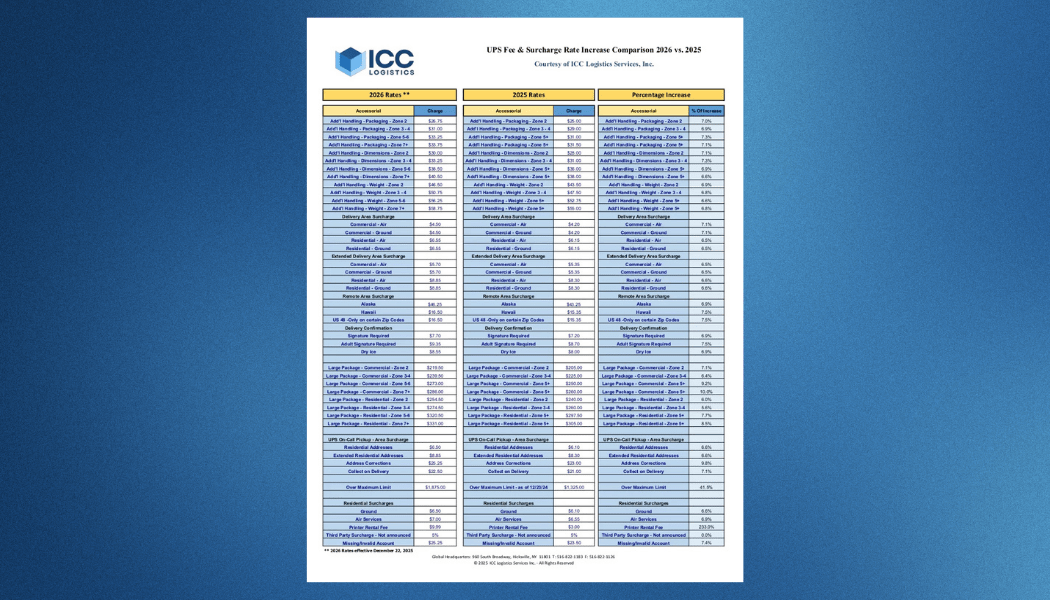Each and every day shippers are faced with the challenge of negotiating rates as well as contract terms and conditions with their freight carriers in an effort to control constant rising freight costs. This is a challenge that must be met head on by all shippers, some of whom go into these negotiations confidently believing they fully understand freight carrier pricing structures. Then there are those shippers who really have no idea what a really good deal looks like or what they are about to encounter in these carrier negotiations. The following is a real life story of a shipper in the latter group.
The shipper we refer to is a global wearing apparel manufacturer with an annual freight spend well into the millions of dollars a year covering both domestic and international shipping activity. The company does not currently employee anyone who has significant transportation and logistics experience to handle the negotiations. Unfortunately, this is the case for many businesses today.
As anyone who handles these negotiations knows, it is never a one and done process. The carrier typically makes an initial pricing offer based on what the carrier believes the shipper will accept and be pleased with. That offer is almost always not the best offer for any shipper to accept. But how would a shipper know that unless they had complete knowledge of all freight carrier pricing structures. And, also had the ability to Benchmark and Target Price the shipper’s actual shipping volumes, lanes and product shipping characteristics to ensure the shipper receives the absolute best price offering from their freight carrier(s).
Since there was no transportation and logistics expertise in house, the company CFO was obviously charged with leading the carrier negotiations. The CFO knew full well that some expert advice and guidance was needed to make this a successful negotiation process. The CFO made a wise business decision to hire our company to hold their hands throughout the entire negotiation process to ensure they received “best in class” rates for this multi-year transportation contract negotiation. And, it’s a good thing they did because here’s what we uncovered in our due-diligence process.
As mentioned previously, these negotiations are never a one and done process and it was no different with this client. After several iterations of price offerings from the freight carrier which we analyzed as all being less than acceptable price offerings, the CFO decided that she was tired of this process dragging on and on. She was now committed to accepting the next carrier offer whatever it looked like and just move on to other corporate finance projects. The dragging on part was certainly not the shippers fault, but rather a carrier strategy to wear down the shipper to accept their “latest and greatest offer”.
Well, the carrier’s “latest and greatest” offer wasn’t so great after all, and here’s why. The shipper actually had discounts and incentives in their current contract ranging from 50% to 70% that the carrier was now eliminating completely and replacing them with discounts in the 40 to 50% range. The shipper was sure those 50-70% pricing incentives would just carry through into their new contract….WRONG!
The net result of this “minor detail” alone would have increased the shippers international costs by 42% to 100% depending on whether the shipments were imports or exports. The net dollar amount the shipper would have lost would have amounted to just under $100,000 annually, and this was to be a three year contract, so you do the math. And, to add insult to injury for the international shipments covered by this attempted pricing change, the shipper actually would be paying more than they are currently paying for similar import and export shipments. So, this was certainly not a good deal at all for our client!
So of course our advice to the shipper was to stand ground and NOT accept the latest offer from the freight carrier but rather hold the carriers feet to the fire to change those international incentives back to where they were previously.
In summation, the key to successful carrier negotiations is to always negotiate from a position of strength. With our Data Science capabilities and forty plus years of contract negotiations experience, this shipper now had all the leverage it needed to obtain a world class transportation contract agreement.
There is an old Latin saying, “Caveat Emptor” translated, “let the buyer beware” and doesn’t that say it all. Remember, you don’t have to go-it-alone in freight carrier contract negotiations and never should.



 to receive our FREE white papers:
to receive our FREE white papers: